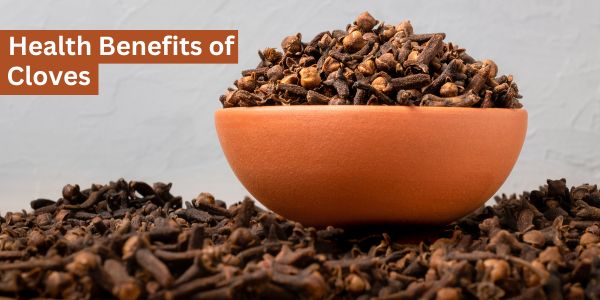Seeds You Should and Should Not Eat
Seeds are like nature’s tiny treasure chests, packed with an arsenal of nutrients, just waiting to unleash their goodness into your body. But hold on! Not all seeds deserve a VIP pass into your diet. While some can supercharge your health, others might just leave you with regrets (and maybe a stomachache).

In this write-up, we’re diving into the wonderful world of seeds, spotlighting the ones that can elevate your well-being and the ones that might have a few hidden surprises you’d rather avoid. So grab a snack (maybe some of the good seeds!), sit back, and let’s explore which little powerhouses deserve a spot in your pantry and which ones should stay far, far away.
Five Seeds You Should Eat
1. Pumpkin Seeds
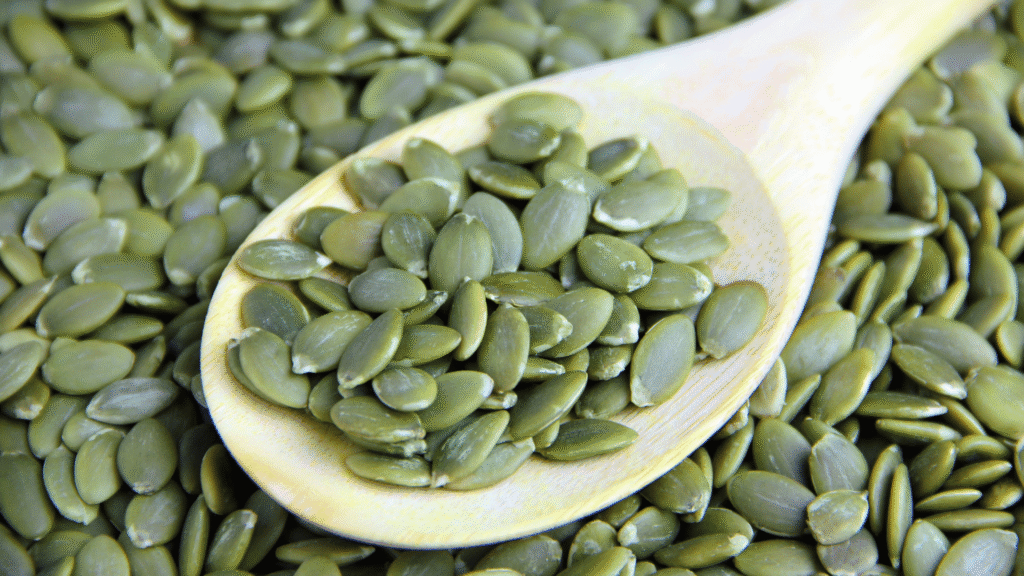
Pumpkin seeds aren’t just for Halloween! These little green gems are more than just a crunchy snack; they’re a nutritional powerhouse loaded with health benefits that’ll make you want to keep them in your daily rotation.
First off, let’s talk about magnesium, one of the most important minerals for your body. Think of it as the backstage crew that keeps your heart, nerves, and muscles running smoothly. Magnesium helps regulate blood pressure, improve sleep quality, and even supports your mood. Just a handful of pumpkin seeds can help you meet your daily dose. Who knew such a tiny seed could play such a big role?
A 2016 study published in the International Journal of Environmental Research and Public Health found that pumpkin seeds are an excellent source of magnesium, which is vital for numerous bodily functions, including blood pressure regulation, muscle and nerve function, and bone health.
Additionally, research suggests that the high antioxidant content of pumpkin seeds, including carotenoids and vitamin E, helps combat oxidative stress, reducing the risk of chronic diseases like heart disease and cancer (Nutrients Journal, 2018).Say hello to glowing skin and a happy immune system!
Need an immunity boost? Zinc in pumpkin seeds has got your back. This mineral is a game-changer for immune function, wound healing, and even hair health. Plus, for those keeping an eye on their weight, pumpkin seeds are a waistline-friendly snack. Thanks to their fiber and protein content, they help keep you full and satisfied, curbing those sneaky snack attacks.
A study in Nutrients Journal (2017) also highlighted the weight-loss benefits of pumpkin seeds, stating that their fiber and protein content helps curb cravings and promote satiety, making them a great snack for weight management.
And let’s not forget about heart health. With their dynamic trio of magnesium, potassium, and healthy fats, pumpkin seeds can help lower blood pressure and reduce the risk of heart disease. So next time you’re looking for a crunchy, nutritious snack, pumpkin seeds should be high on your list!
2. Sesame Seeds
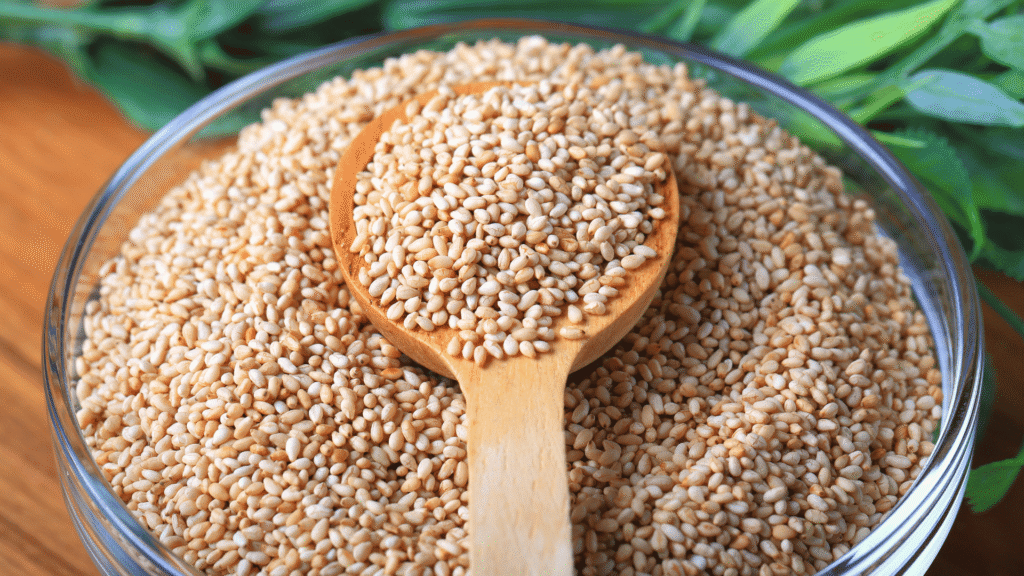
Tiny but mighty, sesame seeds are like the unsung heroes of the seed world. They may not always be in the spotlight, but they’re working behind the scenes to keep your body thriving.
According to a 2014 study in The American Journal of Clinical Nutrition, these fats in sesame seeds can reduce bad cholesterol levels, lower blood pressure, and support heart health. They help lower bad cholesterol (LDL) and promote good cholesterol (HDL), reducing your risk of heart disease. So, go ahead, sprinkle them on your salad, yogurt, or stir-fry. Your heart will thank you.
A 2016 study in Nutrients found that sesame seeds are one of the best non-dairy sources of calcium, essential for bone strength and preventing osteoporosis. Who needs a dairy overload when you’ve got sesame?
And if that wasn’t enough, sesame seeds are bursting with antioxidants like sesamin and sesamol. These compounds fight inflammation, protect against cell damage, and even support immune function. They’re like little bodyguards, keeping you strong and resilient against illnesses.
Additionally, a study in the Journal of Medicinal Food (2017) found that sesame seed consumption improved lipid profiles and helped regulate blood sugar levels in diabetic patients.
Feeling sluggish? Sesame seeds contain B vitamins, iron, and zinc, which play a key role in energy production and metabolism. Toss them into your diet, and you’ll feel that extra pep in your step in no time!
3. Sunflower Seeds
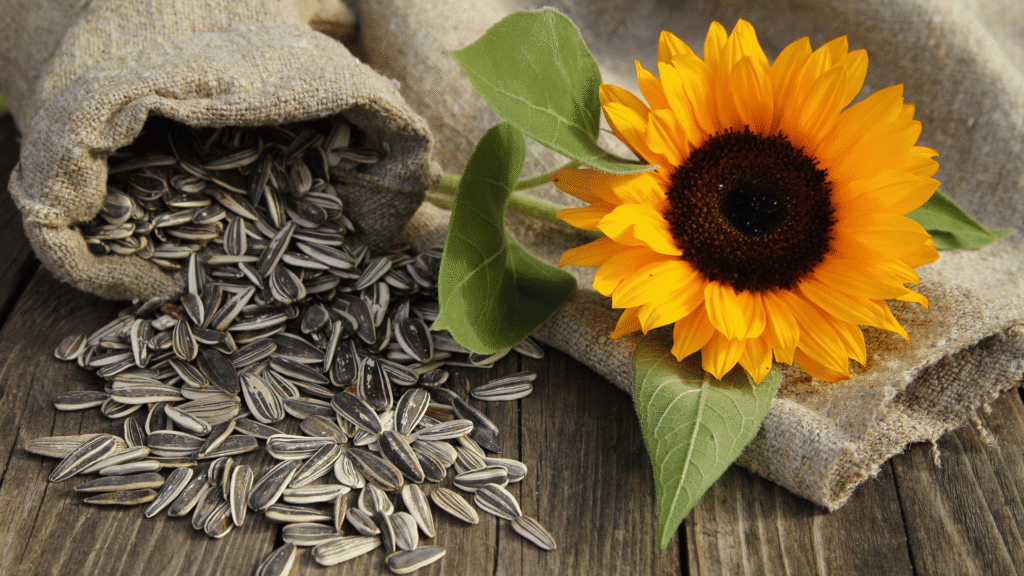
Sunflower seeds are the crunchy, nutty little powerhouses that deserve way more hype than they get. They’re like that friend who’s always there when you need them, reliable, full of energy, and great at boosting your mood!
One of their biggest strengths? Magnesium, the MVP of muscle and nerve function, blood sugar control, and bone health. If your body were a car, magnesium would be the fuel keeping it running smoothly.
Additionally, a 2016 study in Advances in Nutrition found that sunflower seed consumption is linked to lower levels of C-reactive protein (CRP), an inflammatory marker associated with heart disease.
Sunflower seeds are also a dream for anyone trying to maintain or lose weight. Despite their small size, they pack a punch of fiber, protein, and healthy fats, which keep you full and satisfied for longer. No more mindless snacking on empty calories!
Research published in the Journal of Trace Elements in Medicine and Biology (2018) highlighted that selenium in sunflower seeds boosts immune function and may have cancer-fighting properties. So, if you needed another reason to snack on these crunchy delights, there you have it!
Also Read: 9 Health Benefits of Pumpkin
4. Flax Seeds
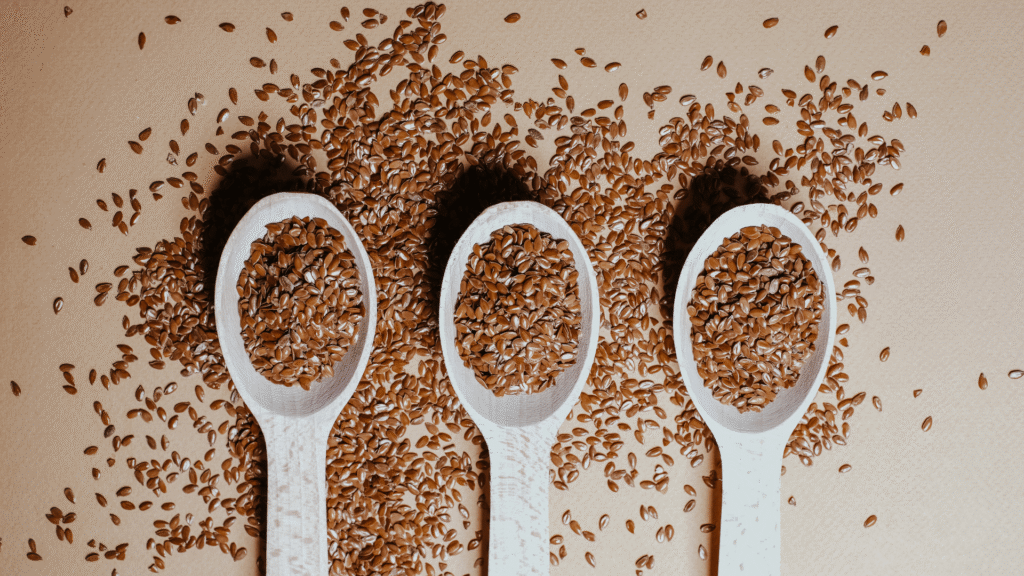
Flax seeds are rich in omega-3 fatty acids, specifically alpha-linolenic acid (ALA), which has been shown to reduce the risk of heart disease. A meta-analysis in the American Journal of Clinical Nutrition (2018) found that regular flaxseed consumption significantly lowers blood pressure.
Moreover, a study in The Journal of Nutrition (2015) revealed that flax seeds are one of the richest sources of lignans, plant compounds with powerful antioxidant properties linked to a reduced risk of hormone-related cancers such as breast and prostate cancer.
5. Chia Seeds
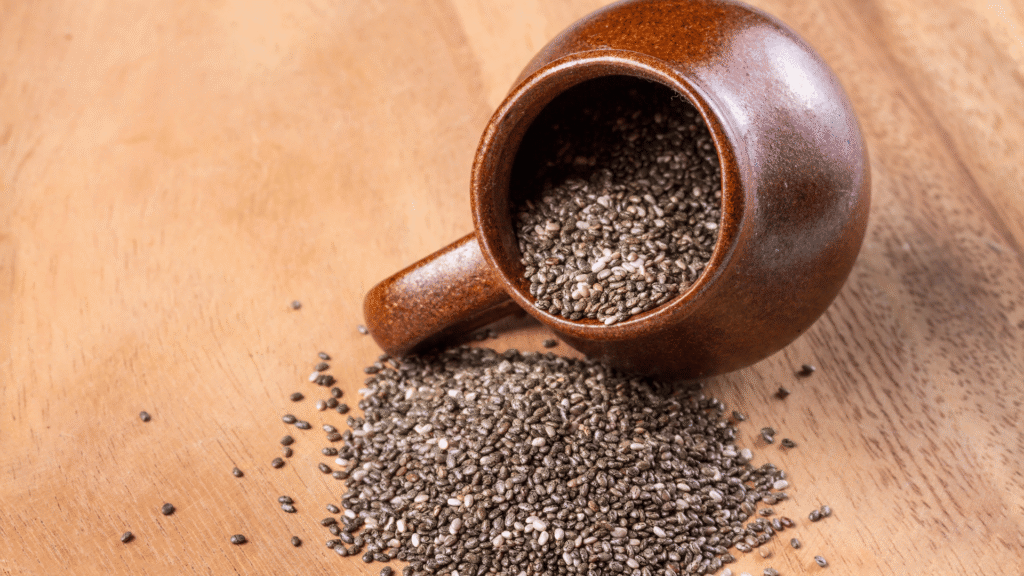
Despite their small size, chia seeds are loaded with fiber, protein, and antioxidants. A 2017 study in Nutrients found that chia seeds help regulate blood sugar levels, making them an excellent choice for individuals with diabetes.
Research in the European Journal of Clinical Nutrition (2016) indicated that chia seeds promote digestive health by aiding regular bowel movements and improving gut microbiota. Their high omega-3 content also contributes to heart health.
Four Seeds You Should Avoid
1. Tomato Seeds
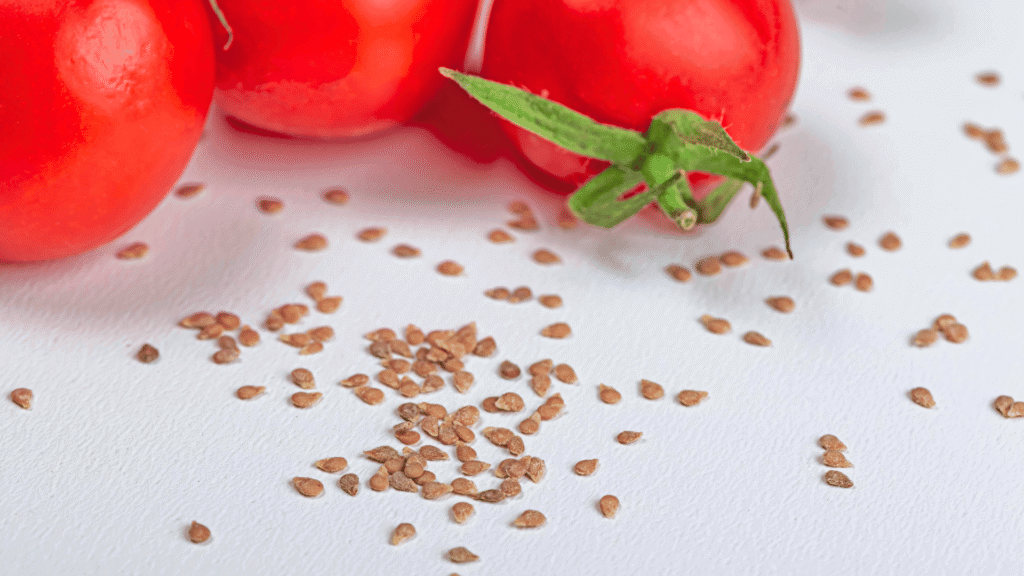
We all love tomatoes in our salads, sandwiches, and sauces, but their seeds? Not so much. Tomato seeds contain lectins and glycoalkaloids, which can be harsh on digestion and cause discomfort for some people.
A 2019 study in Food and Chemical Toxicology found that excessive consumption of tomato seeds can lead to gastrointestinal discomfort in sensitive individuals.
Also Read: Avoid Ginger If You Have These 9 Health Problems
They also contain trace amounts of tomatine, which, in large quantities, could be problematic. So, if you love tomatoes but have a sensitive stomach, you might want to scoop out those seeds before indulging.
2. Apple Seeds
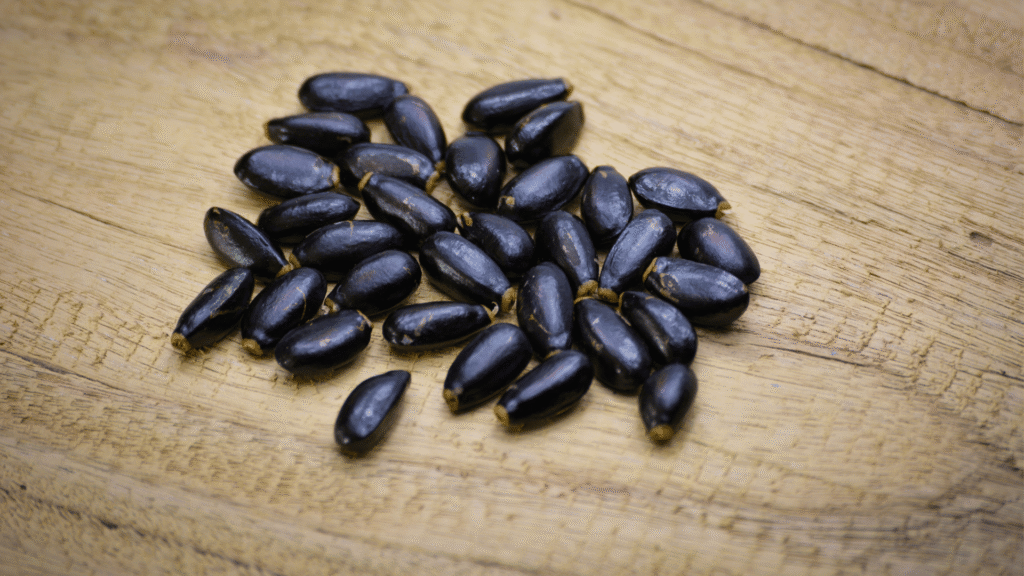
An apple a day keeps the doctor away, but apple seeds? Maybe not. These tiny seeds contain amygdalin, which, when metabolized, releases cyanide, a toxin you definitely don’t want in your system.
According to a 2017 report in Toxicology Research, consuming large amounts of apple seeds can be dangerous. However, accidentally swallowing a seed or two is generally harmless.
3. Nutmeg Seeds
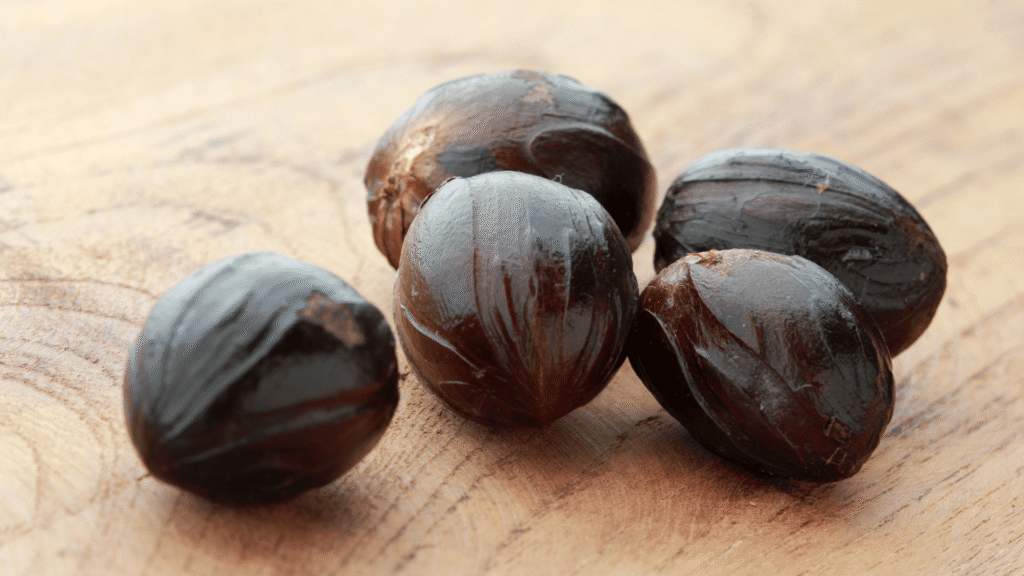
A sprinkle of nutmeg in your latte or holiday pie? Delicious. But eating nutmeg seeds in large quantities? That’s a recipe for disaster. Nutmeg contains myristicin.
A case study published in the Journal of Medical Toxicology (2016) reported instances of nausea, dizziness, and hallucinations from excessive nutmeg consumption. So, enjoy nutmeg in moderation, but don’t go overboard!
4. Litchi Seeds
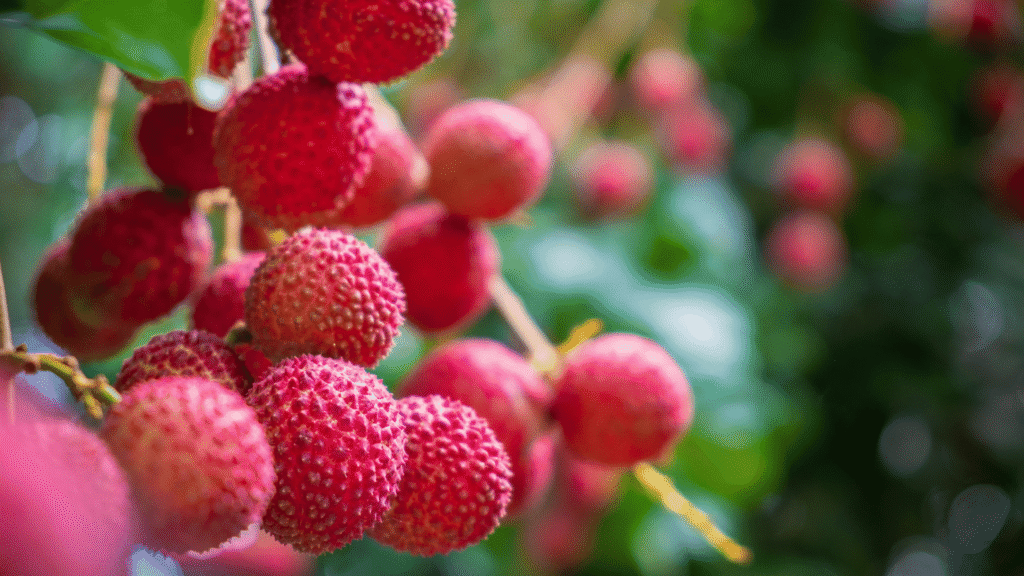
Litchis are sweet, juicy, and absolutely delightful, but their seeds? Not so much. Litchi seeds contain compounds that can release toxins when eaten in excess, potentially leading to digestive issues and toxicity.
A study in The Lancet (2017) linked excessive litchi seed consumption to cases of acute encephalopathy in children in India. Plus, they’re a choking hazard, especially for kids. So, savor the fruit but leave the seeds behind!
Conclusion
Seeds can be some of the most nutrient-dense foods on the planet, but knowing which ones to embrace and which ones to avoid is key to making the most of their benefits. Whether you’re munching on pumpkin seeds for a magnesium boost or steering clear of apple seeds to avoid unwanted toxins, being mindful of what you eat can make all the difference in your health journey.
Loved this video? Show us some love by liking, subscribing, and sharing with your fellow health enthusiasts! Until next time, stay healthy and snack wisely!




